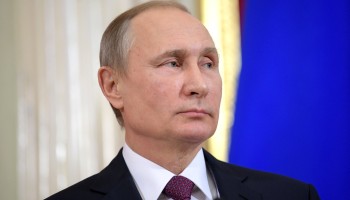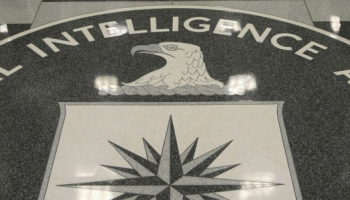“The United States joins the European Union in condemning and responding to the Russian Federation’s use of a chemical weapon in the attempted assassination of Russian opposition figure Aleksey Navalny in August 2020 and his subsequent imprisonment in January 2021,” the U.S. State Department said in a statement on Tuesday.
The U.S. has consistently characterized the legal offensive against Navalny as politically motivated, “an assessment shared by our G7 partners and the European Court of Human Rights,” and reiterated its call for the Russian government to immediately and unconditionally release the Kremlin top critic, the statement said.
With this decision, the State Department expanded existing sanctions first imposed on Russia after its 2018 chemical weapon attack against Sergei Skripal in the United Kingdom, three years ago.
The Department of the Treasury’s Office of Foreign Assets Control (OFAC) identified the Russian government officials as Director of Federal Security Service (FSB), Aleksandr Bortnikov; Chief of the Presidential Policy Directorate, Andrei Yarin: First Deputy Chief of Staff of the Presidential Executive Office, Sergei Kiriyenko; Deputy Defense Minister, Aleksey Krivoruchko, Deputy Defense Minister, Pavel Popov; Director of the Federal Penitentiary Service (FSIN), Alexandr Kalashnikov; and Prosecutor General, Igor Krasnov.
The U.S., according to the Treasury Department, “believes that the FSB used a nerve agent to poison Navalny, who fell gravely ill on August 20, 2020 while traveling after campaigning against pro-Kremlin candidates in regional elections held in September 2020.”
The Department also recalled that Navalny has for many years been the target of FSB surveillance, including wiretapping and covert video surveillance.
“The Kremlin’s use of chemical weapons to silence a political opponent and intimidate others demonstrates its flagrant disregard for international norms,” Secretary, Janet L. Yellen, said.
Besides the Russian officials, the State Department also implemented measures against “weapons of mass destruction proliferators” and individuals and firm associated with the Russian Federation’s chemical weapons program and defense and intelligence sectors.
The U.S. Department of Commerce said the measures are targeting 14 entities located in Russia, Germany, and Switzerland.
Russian authorities arrested Alexei Navalny in January as he landed in Moscow from Berlin, where he was treated after surviving a poisoning attack in Russia. Navalny was arrested and sentenced to nearly three years in prison for parole violations. The move was criticized internationally.






